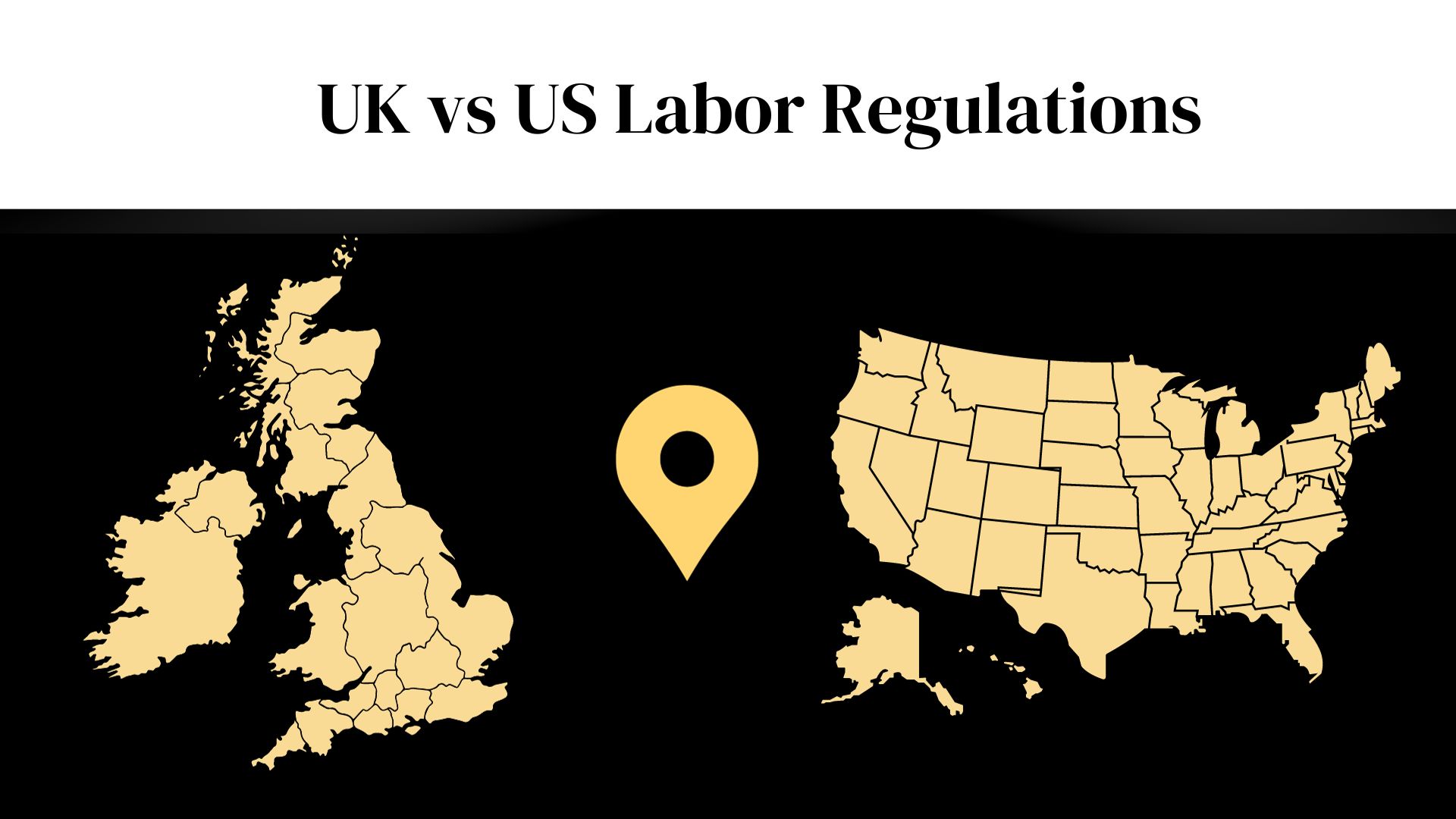Labor laws play a crucial role in safeguarding the rights and well-being of workers around the world. While these laws are designed to protect employees, they can vary significantly from one country to another. In this blog post, we will explore the key differences in labor laws between the United States and the United Kingdom.
Employment Contracts in the US vs the UK
Employment in the U.S. is typically at-will, meaning employers can terminate employees at any time, with or without cause. Employment contracts are not as common, making job security somewhat precarious. This also means that there aren’t many regulations over notice periods.
The UK generally has more structured employment contracts, and employment is typically governed by these contracts. Notice periods and dismissal procedures are well-defined, offering more job security for workers.
Minimum Wage in the US vs the UK
The U.S. federal minimum wage is set at the national level but can be supplemented by state and local laws. This means rates can vary significantly, with some states having higher rates than the federal minimum wage.
The UK has a national minimum wage that applies to all workers. The rate is reviewed annually, and it applies uniformly across the country. The UK also has a separate “National Living Wage” for workers aged 23 and over.
Working Hours and Overtime in the US vs the UK
In the U.S., the Fair Labor Standards Act (FLSA) mandates that non-exempt employees receive overtime pay (1.5 times their regular rate) for hours worked beyond 40 in a work week. Some states also mandate varying overtime rules, such as California.
The UK enforces the Working Time Regulations, which sets a maximum average working week of 48 hours. Overtime rates vary but are typically 1.5 times the regular rate or higher.
While the USA often emphasizes flexibility and employer autonomy, the UK places greater emphasis on structured contracts, worker representation, and welfare provisions.
